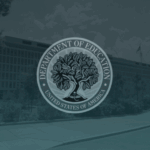Identity Necessary for Survival
Americans are fighting the war on terror with technology and weapons, but one man says Americans are lacking the strongest, most effective weapon—identity.
Natan Sharansky, author of Defending Identity and the New York Times best-seller The Case for Democracy, spoke about the importance of attaining a sense of identity in a democratic society at the Heritage Foundation on June 3.
“Identity, a life of commitment, is essential because it satisfies a human longing to become part of something bigger than oneself,” Sharanksy wrote in his book Defending Identity.
Sharansky, a former Soviet dissident, prisoner and recipient of America’s highest civilian award, the Presidential Medal of Freedom in 2006, said that some people around the world, including terrorists, are willing to die to sustain their identities and backgrounds.
“There are things that are more important than immediate physical existence; there are things which are more meaningful,” said Sharansky, who served as minister and deputy prime minister on the Israeli cabinet.
Without a clear sense of identity, freedom is not guaranteed, Sharansky argued. “…Without commitment and without energy, which your identity is giving to you, you won’t be able to fight for freedom,” said Sharansky.
Terrorists have a defined purpose, because their identities are defined, and identity is crucial for success, according to Sharansky.
“The enemy’s will is strong because his identity is strong,” wrote Sharansky in his book. “Not only are strong identities vitally important to individuals who hope to lead a life of purpose, they are essential for the ability of a democratic nation to defend its cherished freedoms.”
And defending “cherished freedoms” means understanding that a sense of identity is positive and crucial in today’s multi-cultural world, said Sharansky.
“Far from being enemies, freedom and identity are stanch allies in the struggle against evil,” said Sharansky. “Indeed, only by building societies where both democracy and identity can flourish can we ensure a peaceful world.”
And to attain an identity and maintain peace, people must first learn the values of selflessness and vision, according to Sharansky.
“Those who feel a connection to ideals and values beyond the individual self, who believe that they are participating in a grand collective adventure, and who are convinced that they are acting on behalf of past and future generations are prepared to make great individual sacrifices,” said Sharansky.
Sacrifice and identity are rare in Europe. One man at the Heritage Foundation even questioned Western Europe’s move from identity to relativism and individualism. The move toward individualism is because Europeans do not pledge their allegiance to democracy, Sharansky said.
“In Europe, all identities are equal. Today in London, where they’re preaching hatred toward democracy, you’re paralyzed,” said Sharansky. “You can’t do anything. Europe…is making more integration instead of imposing rules of democracy.”
Democracy and identity have both played a crucial part in the war against terror, according to Sharansky.
“Americans believed they were liberating citizens of Iraq, but they forgot that they were eliminating Sunni and Shia citizens,” said Sharansky. “The moment you remove dictatorship, these different identities will come to the surface.”
Identity surpasses almost everything in the physical world, Sharansky said.
“…Identity offers a sense of life beyond the physical and material, beyond mere personal existence,” said Sharansky. “It is this sense of… belonging to something greater than the self, that gives strength not only to the community but to the individual as well.”
Melinda Zosh is an intern at the American Journalism Center, a training program run by Accuracy in Media and Accuracy in Academia.




